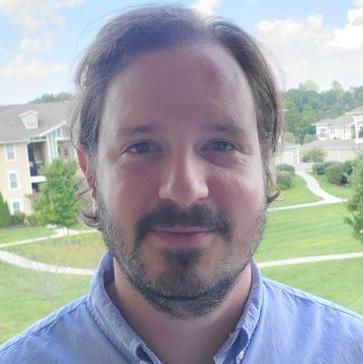Graduate Student Seminar
November 15, 2024
12:45 p.m. ET
Wean Hall 7500
November 15, 2024
12:45 p.m. ET
Wean Hall 7500
Autonomous research laboratories (also known as self-driving labs) accelerate the scientific process - letting scientists fail smarter, learn faster, and spend less resources in their studies. This is achieved by placing machine learning in control of automated lab equipment, i.e., putting machine learning in the driver’s seat. The user defines their goals and the machine learning then selects, performs, and analyzes experiments in a closed loop to home in on those goals. By integrating prior knowledge into the machine learning framework, even greater accelerations can be achieved. Knowledge sources include theory, computation, databases, and human intuition. In this talk, I will discuss NIST’s diverse set of autonomous labs for materials exploration and discovery. I will also discuss how integrating external knowledge boosts their performance.
 A. Gilad Kusne, Staff Scientist, National Institute of Standards and Technology (NIST); Adjunct professor, University of Maryland
A. Gilad Kusne, Staff Scientist, National Institute of Standards and Technology (NIST); Adjunct professor, University of MarylandKusne received his B.S., M.S., and Ph.D. degrees from Carnegie Mellon University. He is a Staff Scientist with the National Institute of Standards and Technology (NIST), Gaithersburg, Maryland, an adjunct professor with the University of Maryland, and a Fellow of the American Physical Society. His research is part of the White House’s Materials Genome Initiative at NIST, a project which aims to accelerate the discovery and optimization of advanced materials. He leads the machine learning team of an international, cross-disciplinary effort building autonomous research systems, with the goal of advancing solid state, soft, and biological materials. For these systems, machine learning performs experiment design, execution (in the lab and in silico), and analysis. He was twice awarded the NIST Bronze Award (highest internal award). He is also the lead founder and organizer of the annual Materials Informatics competition and the Machine Learning for Materials Research Bootcamp and Workshop (now on its 9th year)—educating next generation and mid-career material scientists in machine learning.
November 4 2025
7:00 AM ET
US locations
November 4 2025
9:00 AM ET
Materials Science and Engineering
M.S. Program Information Session
Join us online to learn more about becoming part of the graduate student community through our master's degree programs.
Virtual
November 5 2025
4:00 PM ET
Materials Science and Engineering
"What Materials Research Looks Like At Apple,” presented by Carolyn Duran
Doherty A303
November 7 2025
12:45 PM ET
Materials Science and Engineering
Adventures in additive manufacturing for space exploration, presented by Daniel Oropeza, University of California Santa Barbara
7500 Wean Hall
November 11 2025
11:00 AM ET
Materials Science and Engineering
"Behind the Scenes with an ACS Editor: Insights into Scholarly Publishing and Manuscript Preparation,” presented by Dr. Raymond Schaak
5201 Scott Hall
November 13 2025
4:30 PM - 6:30 PM ET
Roberts Engineering Hall, Singleton Room, 4th floor